A few flickers of light may be penetrating Libya’s deepening gloom. On the one hand, Libya’s misery grows worse. As Acting U.N. Special Representative Stephanie Williams told the U.N. Security Council on September 3, COVID-19 cases are expanding exponentially in the country; Libyans suffer from sustained electricity black-outs in the face of an oil blockade; social protests are being forcefully dispersed; fissures burst open in the Tripoli-based political coalition; and foreign arms shipments continue to make a mockery of the international arms embargo. On the other hand, the military front lines in Sirte have remained largely quiet since June, and some political discussions have resumed.
Whether these nascent and fragile bright spots symbolize the start of something promising or are quickly extinguished depends in large part on how the international meddlers in Libya react.
Steps toward progress?
In Montreux, Switzerland, Libyans representing about a dozen political and geographic constituencies linked to key individuals from across the country met September 7-9 under the auspices of the Centre for Humanitarian Dialogue and in the presence of the U.N. Support Mission in Libya (UNSMIL). Those who were in Montreux are connected to key influential political and military leaders in Libya. The recommendations deriving from this meeting, were they to be followed in practice, would lead to unified institutions, renewed political dialogue, and, eventually, elections.
This progress builds on steps in other arenas. On August 21, we saw ceasefire declarations issued by the House of Representatives Speaker Agila Saleh (based in Libya’s east) and Tripoli-based Government of National Accord (GNA) head Fayez Serraj. While not identical, these declarations were coordinated and contain important points of convergences. In addition, Saleh and the head of the Libyan State Council — an advisory body based in Tripoli that derived from the same 2015 agreement that created the GNA — Khalid Mishri have had a series of consultative meetings hosted by Morocco. Two municipalities, Ghat and Misrata, recently conducted largely peaceful municipal elections. And the long-awaited audit of the central bank, a prerequisite to reunifying the bank (an agreement that could lead to an end of the oil embargo Field Marshall Khalifa Haftar has imposed since January), began in August.
Viewing these steps with skepticism and even cynicism is understandable. The list of unimplemented declarations regarding Libya grows longer every year, and one needs to go back no further than the Berlin conference in January to see a constructive outcome immediately undermined by actions on the ground. Even if the participants in Montreux and Morocco are acting in better faith than many of the foreign participants in Berlin apparently were, one can question whether they have the influence on the ground to move toward a renewed and inclusive political dialogue that can finally put Libya on a more positive trajectory. (Professional mediators usually disdain multiple or parallel tracks as promoting “forum shopping” and confusion. But in this case, the Montreux and Morocco tracks can reinforce each other, with the former revolving around key individuals and the latter on two key institutions.)
While weakened by his military reversals, Haftar — who disrupted the planned April 2019 comprehensive political conference by attacking Tripoli — can again be a potential spoiler domestically, perhaps drawing on Salafi and tribal allies in the 604th brigade in Sirte. And surely the composition of the talks both in Montreux and in Morocco was designed by the Libyan participants in the talks themselves to exclude Haftar, giving him an incentive to demonstrate he cannot be sidelined.
The outside players
But the more critical players, who can make a significant difference, are the outsiders whose financial and military support for the warring factions has helped keep the war going. Egypt, Haftar’s main backer, has expressed support for the parallel August 21 ceasefire declarations and has reportedly been in touch with Libyans from both the east and the west. Egypt would have little interest in seeing an outright military fight over Sirte, given Cairo’s need to respond to any attempts by Turkish troops and Turkish-sponsored mercenaries to move further east. Always acutely focused on the Muslim Brotherhood, the United Arab Emirates, Haftar’s other main backer, is probably watching the Montreux and Morocco discussions warily, ready to step in with cash and arms to prevent what Abu Dhabi would see as Brotherhood dominance. The Russians, who have the Wagner group and other forces south of Sirte in Jufra, have not made a secret of their interest in seeing a role for Saif Al-Islam Gadhafi, the former dictator’s son, who had representation in Montreux and whose return to prominence would symbolize for Moscow a repudiation of the 2011 NATO operation. The Turks, whose intervention earlier this year lifted Haftar’s siege on Tripoli, halted their offensive outside Sirte in June but continue to build up their military assets in western Libya.
All of these countries have violated the international arms embargo and undermined the commitments they undertook in Berlin in January. One hopes that Haftar’s retreat and the stalemate outside Sirte have encouraged the realization that the overused phrase “there is no military solution” is indeed correct in the Libyan case.
U.S leadership could help turn these pinholes of light into something more illuminating. As a start, the U.S. should insist on adherence to the conclusions of the Berlin conference, attended by Secretary of State Mike Pompeo, and call out those not in compliance to what was agreed. U.S. policy toward Libya seems to rest on “not wanting ownership” — as if leadership automatically translates to ownership — and the assumption that others with a greater stake in Libyan stability (Europeans fearful of migration, neighbors worried by terrorism, etc.) will take the lead in facilitating an intra-Libyan agreement. But with the Libyans talking with each other across political and geographic lines, there is an acute risk that the differences between the outsider powers may derail these fragile processes. Forceful and sustained U.S. engagement to build unified external support for the intra-Libyan talks is, unfortunately, unlikely at this moment in our electoral history.

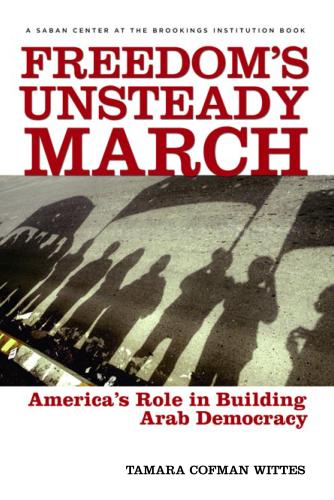
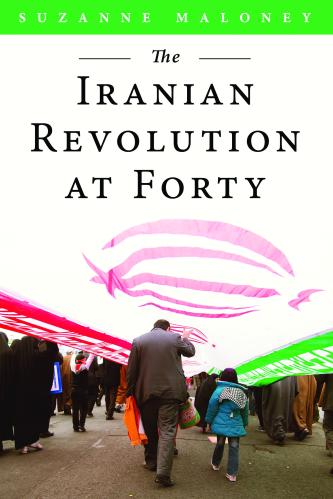
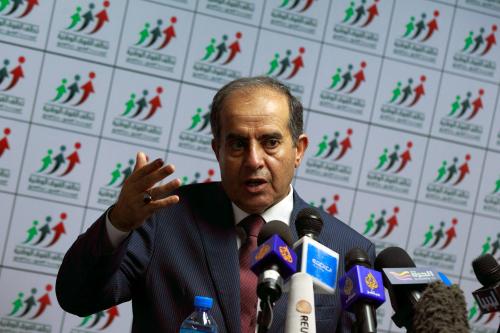
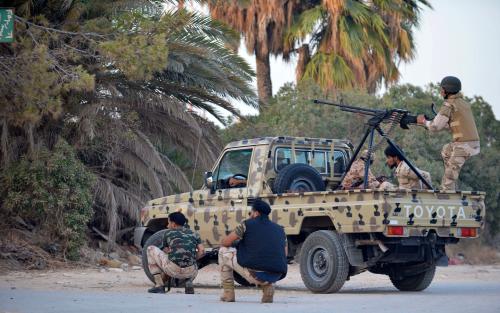

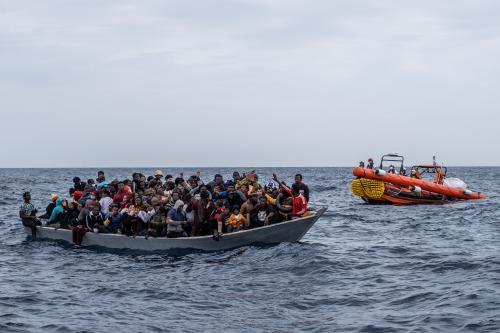
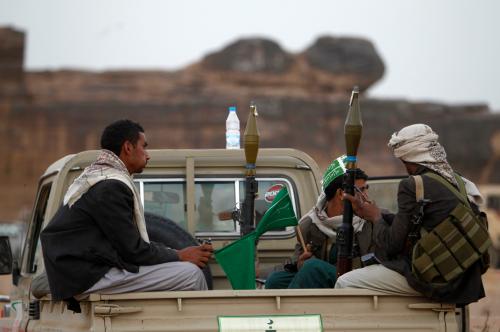
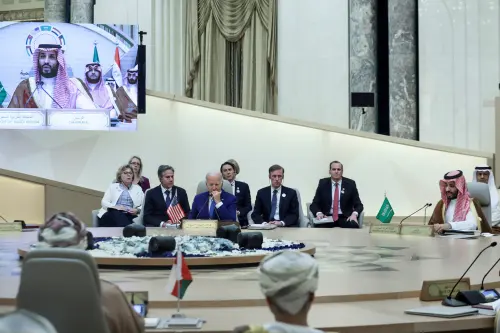
Commentary
Washington can seize a pinprick of light in Libya
September 11, 2020